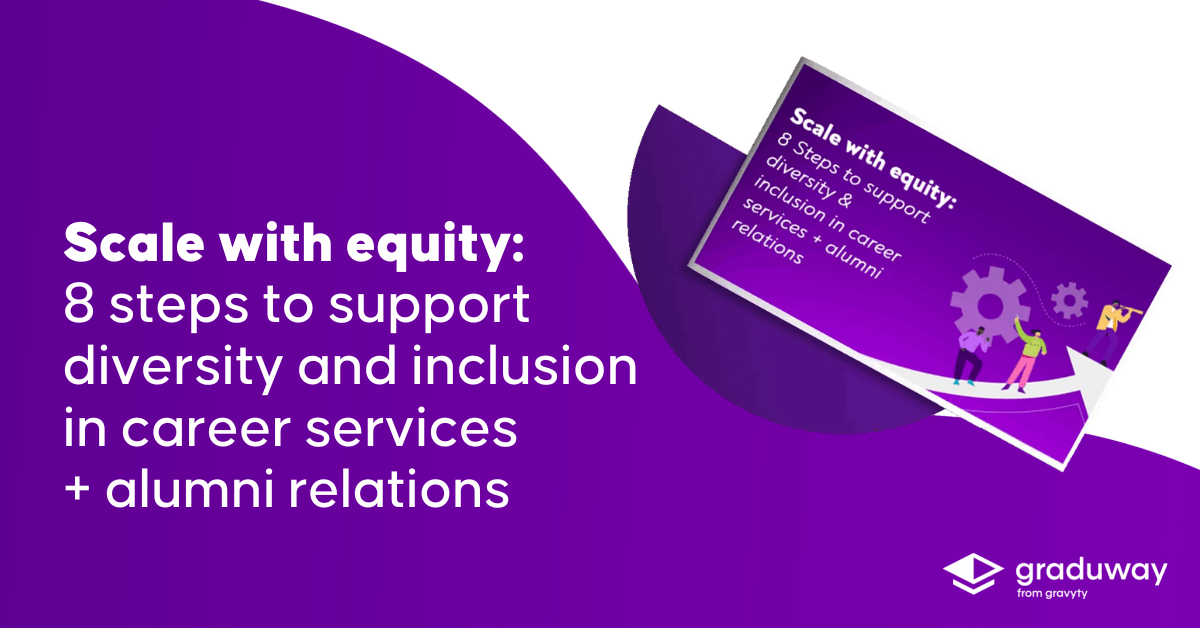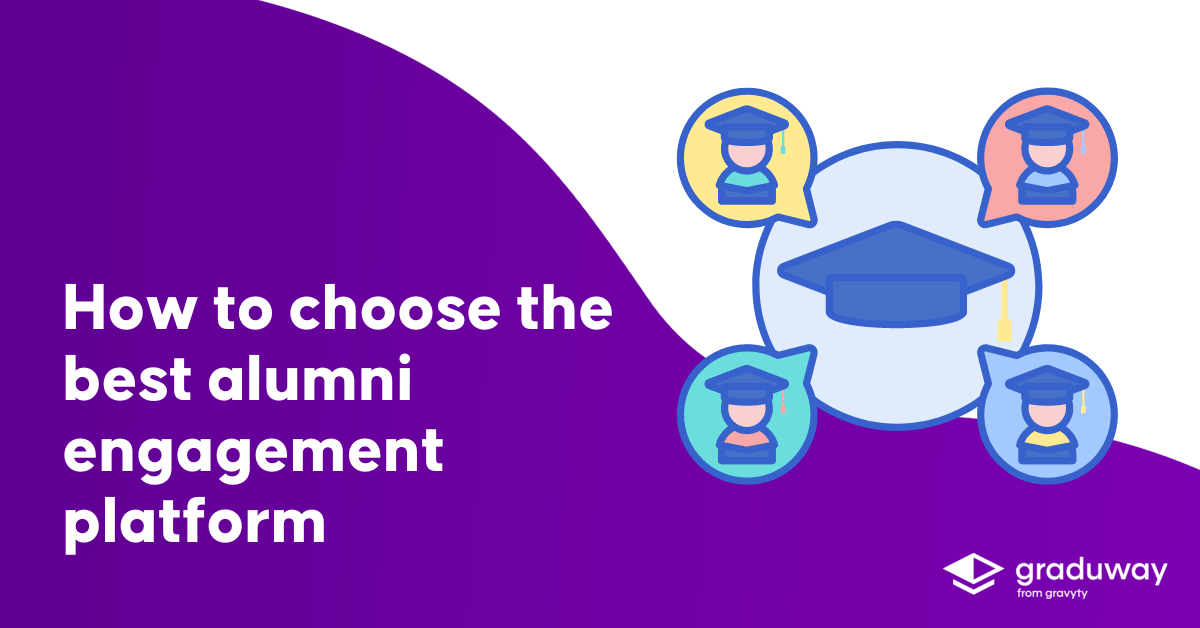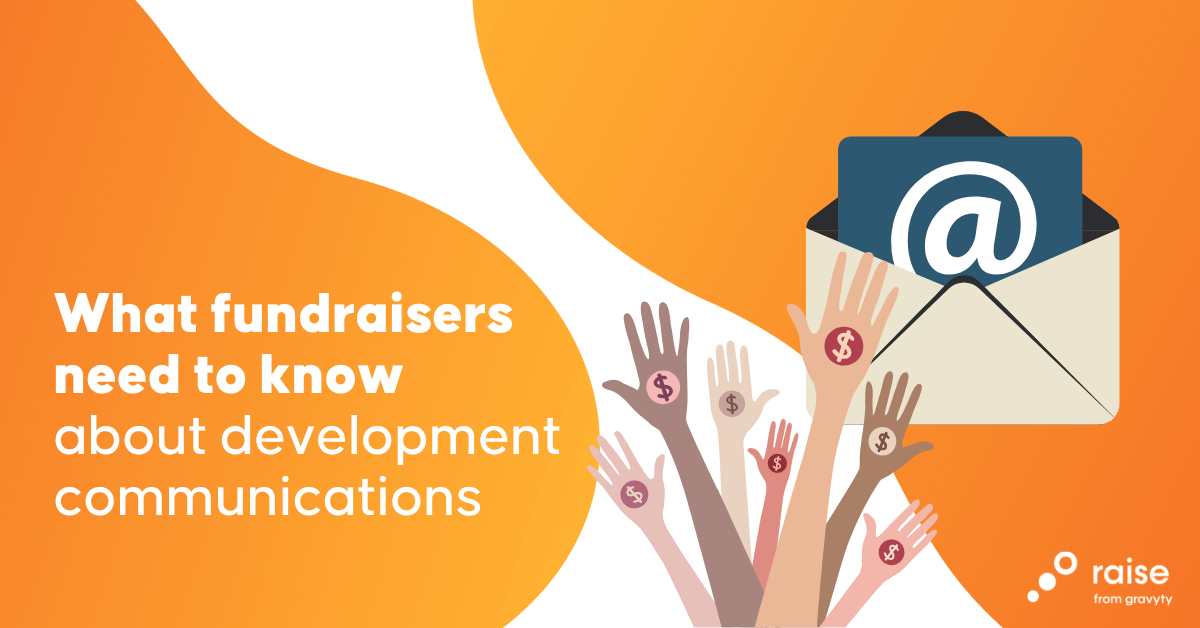8 steps to support diversity and inclusion in career services + alumni relations

Catering to a diverse population
Fortunately, we live in a time where higher education is not just available to a few but is open to anyone prepared to put in the work to access it. It is encouraging to see more diverse populations on campuses worldwide than ever before, but access to education is only a part of the picture.
Most universities offer career services to their students to help them find their way in the world after graduation. However, unfortunately, many universities are failing to offer genuinely inclusive career and alumni services, and thousands of students miss out on vital support in the post-university years.
Our institutions have seen a steady increase of underrepresented students enrolling over the past 40 years.
US Department of Education, National Center for Education Statistics (2019)
This guide addresses how university career services departments can relate more personally with minority students and alumni—exploring ways to increase their commitment to the values of equity, diversity and inclusion (EDI) and ensure that services are equally accessible to all students regardless of gender, race, ethnicity or any other characteristic.
Get the full case study
Scale with equity: 8 steps to support diversity + inclusion in career services + alumni relations
8 steps to inclusive career services + alumni relations
1. Be thoughtful and intentional.
It can be challenging to look in the mirror and admit that you may be the problem. But the truth is that large sectors of the student population are missing out in many schools, and you must consider whether you are providing equal access to career services across your entire student body.
At particular risk are students who have historically lacked access to social capital and may have learned to avoid career services altogether. These students may not see career services as applicable to them or are unsure how to navigate and benefit from the service. This applies to students who are:
- The first in their family to enter college
- Students from low socioeconomic backgrounds
- Students of color, specific ethnic backgrounds
- International students who may have language and cultural barriers to accessing these services
To include these students and find ways to incentivize them to partake, you need to understand their unique perspectives and challenges intentionally.
Action steps
Look at your services honestly and consider:
- Which students are seeking out mentors and which are hanging back?
- Are there students who were not taught how to access these services effectively?
- Are culture or language barriers preventing students from accessing career services?
- How does parental support or lack thereof affect whether students access the services?
- Are low-income students intimidated?
- How are immigrants (and those fearing deportation) behaving around your services?
The first step in designing more inclusive services is to examine what is happening on the ground. Once you’ve identified which students you are not reaching, you can start to delve into why and then determine how to overcome the barriers to entry.
2. Define your terms.
To create career and alumni services that reflect EDI values, you must first establish what diversity, equity and inclusion will look like when applied to your services.
If you have not yet formulated your EDI policies, it is essential to start now so you can ensure that any future offerings comply with your core values.
Action steps
Include a diversity and inclusion statement on your career service’s website and social media accounts. Making a clear statement about your values will assure students and alumni of your position regarding EDI and ensure that all populations feel safe and welcome!
3. Use data.
Data is key to designing more inclusive career and alumni services. The data will tell you what’s happening day to day, allowing you to set key performance indicators and ensure that you can measure progress (or lack thereof).
Every career services department should have systems for measuring and analyzing metrics such as how many students have received help with their resumes, been paired with a mentor or had a career-related connection made.
Action steps
Set up an adequate data gathering system. This may take some time and require you to overcome budgetary restraints or get buy-in from senior leadership, but you should start as soon as possible, prioritize and tackle the changes step by step.
4. Scale your program
Most career departments are predominantly busy with transactional services, such as coaching appointments and on-campus interviews. With these types of services, it is tempting (and easier) to measure success by the number of students through the door or the placement rate. Attempts at scaling generally focus on increasing the number of students who attend interviews or secure jobs when what is needed is to increase the reach of your services.
From the point of view of EDI, scaling should focus on being more inclusive and reaching a wider audience.
Action steps
Once you’ve started looking at your data and examining your operations from a EDI perspective, it will be easy to identify the populations and groups falling outside your net.
Plan events and programs targeted at these populations so that you increase your reach and begin to scale not only in numbers but also in equity and inclusivity.
Get the full case study
Scale with equity: 8 steps to support diversity + inclusion in career services + alumni relations
5. Rethink your positioning
In the traditional model, careers services are treated like a placement center where they either succeed or do not succeed at helping students find jobs or placing them in an internship program. Many career services departments give students the impression that they will pair them with a mentor or find them a job when a better goal would be to empower them to take ownership of their career journey.
A positive career outcome goes beyond just landing someone an interview or a job. Career services need to become more transformative to create a more inclusive environment. Merely helping someone write a resume may not get them a job, but providing moments of inspiration—a positive mentorship experience with an alum or a transformational seminar—may give them the motivation they need to take a bold step towards their future.
Action steps
The old career service model is failing, so rethink how you position your service. Think “life design” rather than career planning.
Offer future planning, events, sessions or groups on different career paths, learning opportunities or certifications. Offer them the ability to see their future through you.
6. Opportunities to engage with those from a similar background
Educate yourself about the issues students and alumni face and address them thoughtfully and impactfully. One powerful way to do this is by providing opportunities for students and alumni to meet and network (either individually or in groups) with other students and alumni from similar backgrounds or ethnicity or those who have had similar issues or experiences.
For example, you are enabling a student of color to engage with another student (or alumni) of color who might share the same career aspirations or be further ahead in a particular career path can be incredibly empowering.
Action steps
Think broadly about how to provide meaningful, empowering experiences to all students equally.
On your website and other marketing materials, highlight specific opportunities to engage around identity issues and social justice. This is something that people can relate to and are inspired by.
7. Diverse alumni networking opportunities
Many alumni want to give back to their school communities and can act as your authentic partners and allies in supporting students and alumni in their career development. Using a varied selection of alumni mentors to help students is one of the most effective career services you can offer.
Data suggests that 85% of jobs are secured through networking.
Be intentional when selecting your alumni mentors and ensure that every student in your population can find a reflection of themselves in the mentors available. It’s also important to appreciate that mentoring relationships have changed, and there is now a lot more scope for long-term and one-to-many relationships.
Traditionally, alumni would always be the mentor and the mentee’s student but today, these relationships are more fluid. People make career changes or seek new paths later in life, so we often find mentors becoming mentees again and vice versa. There are always new opportunities to learn from others over a lifetime of career choices, so investing in the right mentors and striving for diversity at all times is a worthy long-term investment.
Action steps
To ensure that all students benefit from mentorship, consider making this service compulsory. Even making it mandatory to have just one meeting before the end of the quarter or at the end of each semester can have a powerful impact and draw in students who would not usually access career services.
8. Break down barriers with technology
Any event that you can run in person can also be run virtually. The COVID-19 pandemic taught everyone how valuable and practical online platforms can be for networking, educational and even social events.
Action steps
Even in a post-COVID world, online events have their place. People can’t always travel to your location—jobs, parenting and other items might prevent some people from attending.
Make sure you host a good selection of your career and alumni programs online to include as many people as possible.
How Graduway can help
Graduway from Gravyty offers powerful tools that can support your EDI initiatives and help you democratize professional guidance and mentorship for all students and alumni.
Graduway allows you to easily automate relationships, match hundreds of students to appropriate mentors, and let people self-select their mentors – equalizing the playing field.
Use Graduway’s data in the backend to assess your impact for each dedicated program with real-time, actionable insights.
Unleash the power of your alumni network by enabling your community members to connect through Graduway. Get a demo



